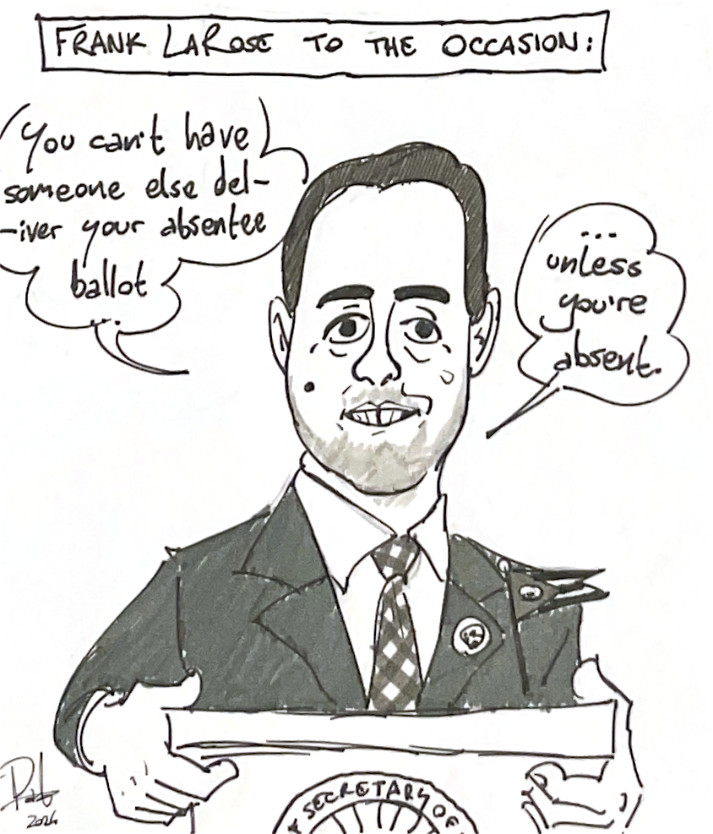Following the 2020 election of President Joe Biden, many Republicans blamed the Democratic win on voter fraud and still believe Donald Trump was the true victor. To prevent voter fraud in Ohio, Secretary of State Frank LaRose issued a directive to alter absentee voting requirements. Although LaRose might simply want to keep Ohio voters honest in the upcoming elections, the directive highlights the lack of trust each political party has towards one another.
According to the Ohio Capital Journal, the new requirements make people who return absentee voters’ ballots sign an attestation that ensures they are following state laws. This only occurs if the individual delivering the ballot is not the voter. Additionally, if someone turns in an individual’s ballot, they must “do so during business hours and sign a form,” says Elizabeth Stiles, who holds a doctorate in political science and teaches at John Carroll University. This shift from LaRose should mitigate potential voter fraud or tampering with a voter’s ballot, even though there is little evidence that the 2020 election was filled with fraudulent voting.
These restrictions make it more difficult for certain voters, especially college students, to send in an absentee ballot. People must call ahead to their local voting booth to identify the person delivering their ballot during business hours, which makes it more likely that these people will not vote at all. Prior to these requirements, absentee voting was more accessible to people who cannot leave school or work simply to vote. If students or working-class individuals must make this extra effort because they cannot make it to the polls on Nov. 5, the incentive to get an absentee ballot is lowered significantly.
The American Civil Liberties Union (ACLU) challenged LaRose’s new absentee voting law especially in regard to how it harms disabled individuals and their chances to vote. Only certain people in a voter’s life are allowed to drop off an absentee ballot on behalf of the voter, and this does not include people such as professional caregivers according to the ACLU. This prevents some disabled voters from having the opportunity to vote because it limits their ability to deliver their absentee ballots when they are unable to do it themselves.
Since the proposed law is being challenged in court, Ohio Republican and Democrat groups are fighting respectively for and against the requirements. Democrats and Republicans have differing opinions on voting constraints, and “Democrats want fewer restrictions and Republicans want more because both parties believe that Democrats will do better with more universal franchise,” according to Stiles. Could LaRose simply be making it more difficult for Democrats to vote in the upcoming election?
There is no way to be completely sure, however, there is a way that college students can still vote in the November election through an absentee ballot to ensure their vote is counted. If John Carroll students still plan to vote absentee, the way to vote is to contact their mailing representatives to make sure they are complying with Ohio law. As long as the individual with the absentee ballot is straightforward with their local voting representatives and aware of voter etiquette, students can vote in the upcoming election and let their voices be heard.



